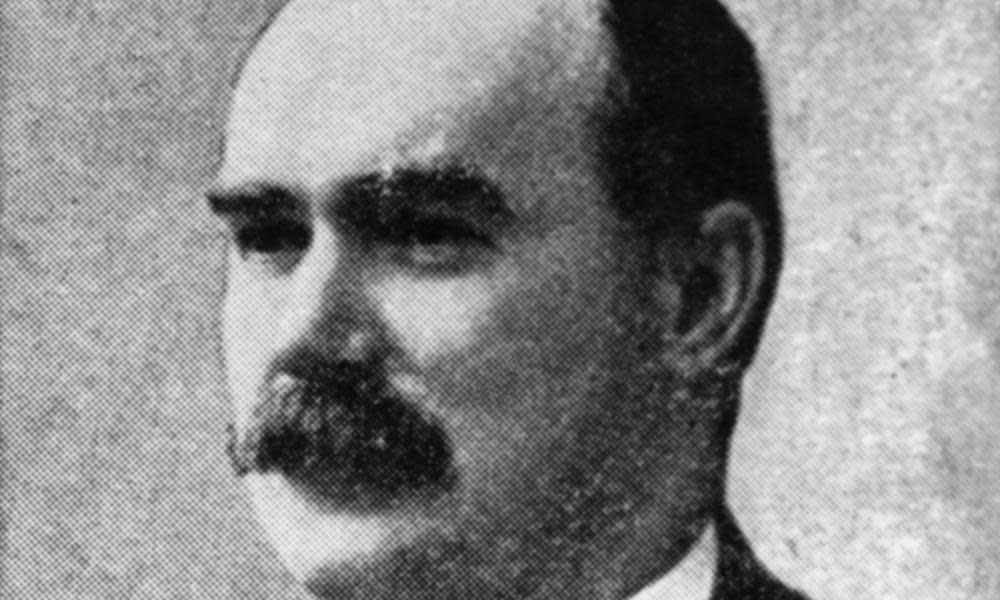Short story in 1894 journal may be lost James Connolly play

An anonymous short story centred on a 19th-century Scottish dockworkers strike could solve the mystery of a lost play by the Irish republican James Connolly, academics believe.
No script has ever been found of the missing play, The Agitator’s Wife, which was first alluded to in a 1935 memoir by Connolly’s daughter Nora.
Edinburgh-born Connolly, one of the contributors to and signatories of the Irish proclamation of independence in the 1916 Easter Rising, was a radical thinker renowned for his journalism and political theory but less celebrated for his creative writing.
The short story, also titled The Agitator’s Wife, was discovered in an obscure journal in Warwick University library. It tells of the struggles of Scottish dockers against the shipping federation on the Leith waterfront from the late 1880s.
The dockers’ leader, Tom Arnold, is exhausted by leading the strike, with a sick child at home, and overwhelmed by a sense of despair that drives him to contemplate suicide. His wife, Mary, steps in to lead the strikers and save the day.
University of Glasgow academics now believe it was written by Connolly. “No script [of the play] has ever been found and there is no specific record of performance,” Prof Willy Maley, Dr Maria-Daniella Dick and Kirsty Lusk write in the Irish Studies Review. “We believe we may have unearthed if not the play itself then at least a version of the missing play.
“This is, of course, a short story and not a play, but in every other sense it fits the bill for Connolly’s missing piece of writing. It was written in the appropriate period, it has the same title, it is rich in dialogue and it reminds us very strongly of Connolly’s other writing in its politics, its themes and in its socialist feminist viewpoint, which was rare for that time.”
Maley, a professor of renaissance studies, said the partnership of equals between Tom and Mary Arnold should come as no surprise. “For Connolly, his idea of a workers’ republic had at its heart the equal rights of all men and women. In fact, his contribution can be seen in the proclamation of independence read in front of the Dublin’s GPO Building at the start of the Easter Rising. From the first line of the proclamation, Irish men and women were regarded as equals with religious and civil liberty, equal rights and equal opportunities guaranteed to all citizens.”
Maley believes it possible Nora Connolly misheard or misinterpreted her mother speak of The Agitator’s Wife, and that it was a short story rather than a play. The story was discovered in the February 1894 issue of a short-lived Christian socialist journal, the Labour Prophet.
Connolly, who sustained serious wounds during the Easter Rising, was court-martialled and executed by firing squad on 12 May 1916.

 Yahoo News
Yahoo News 
